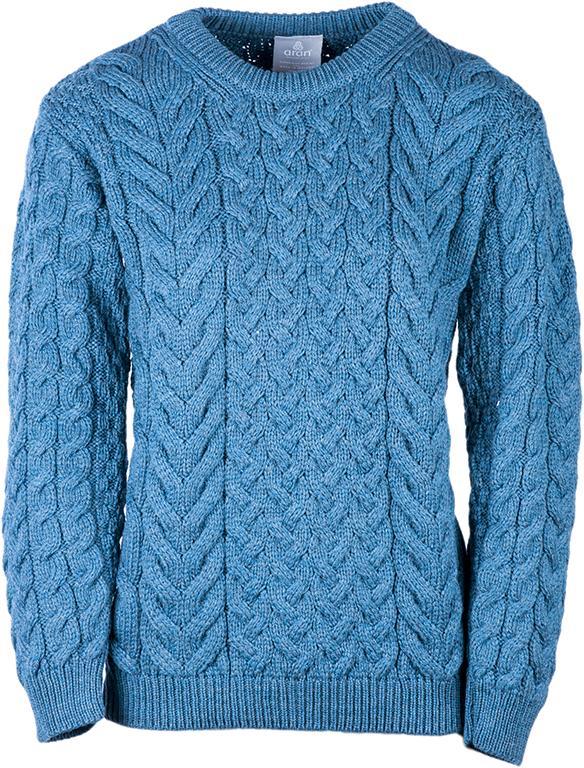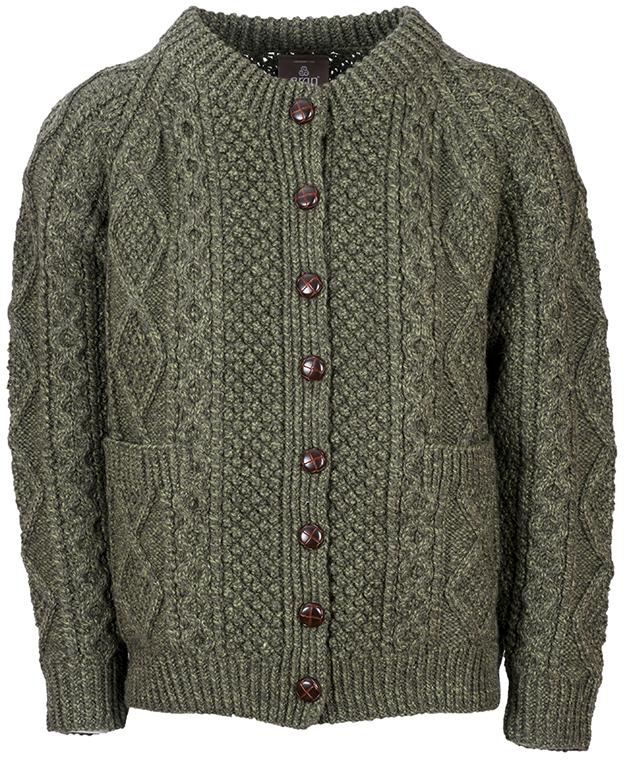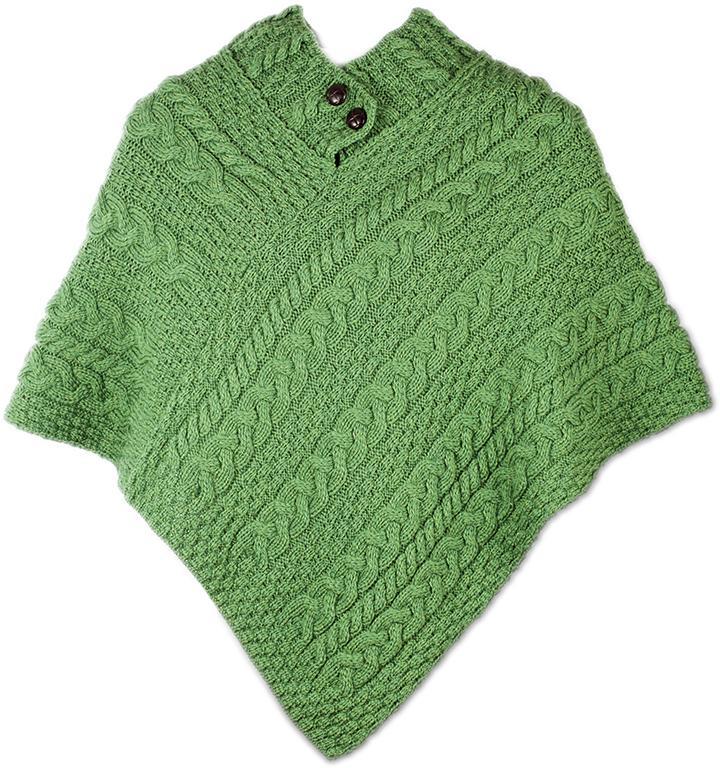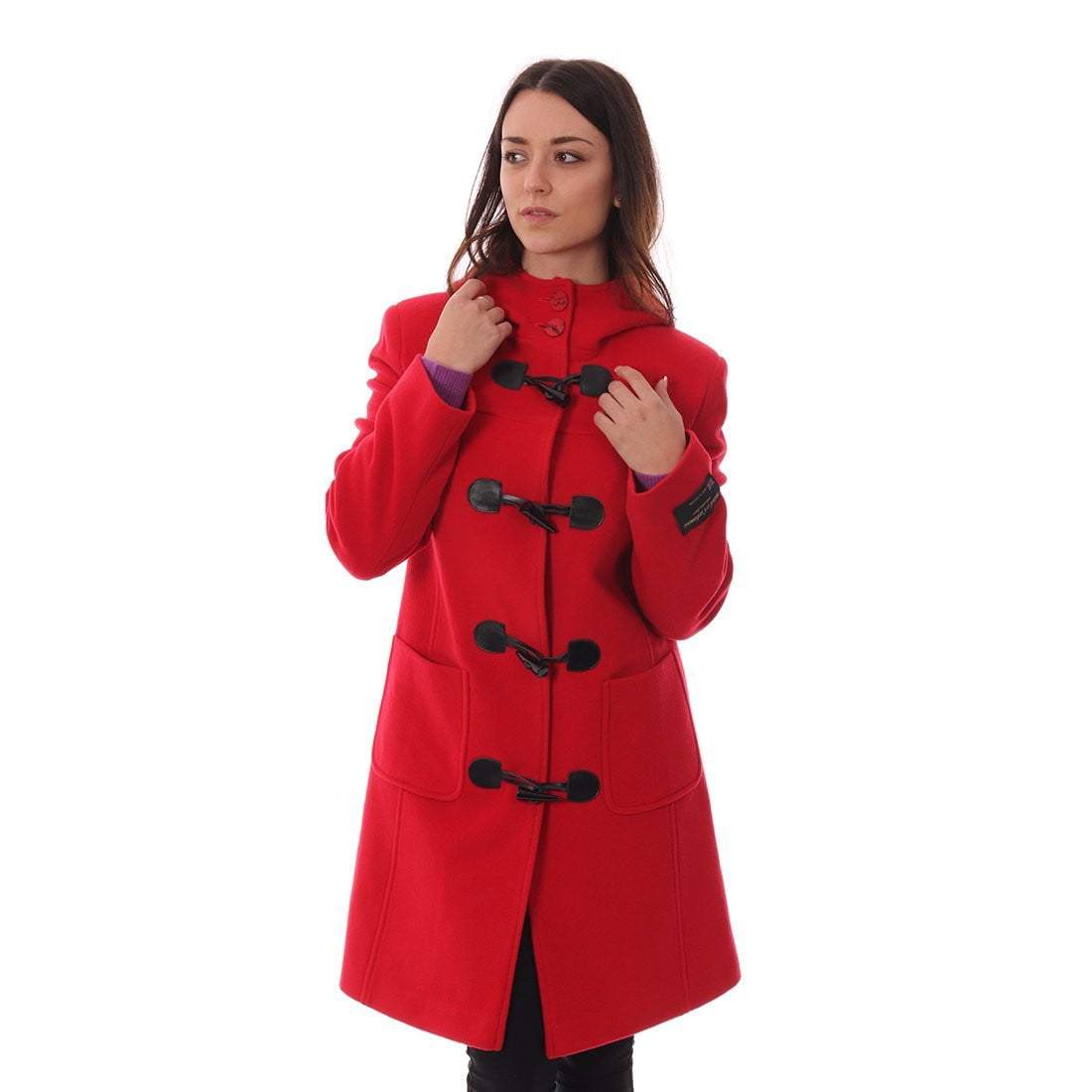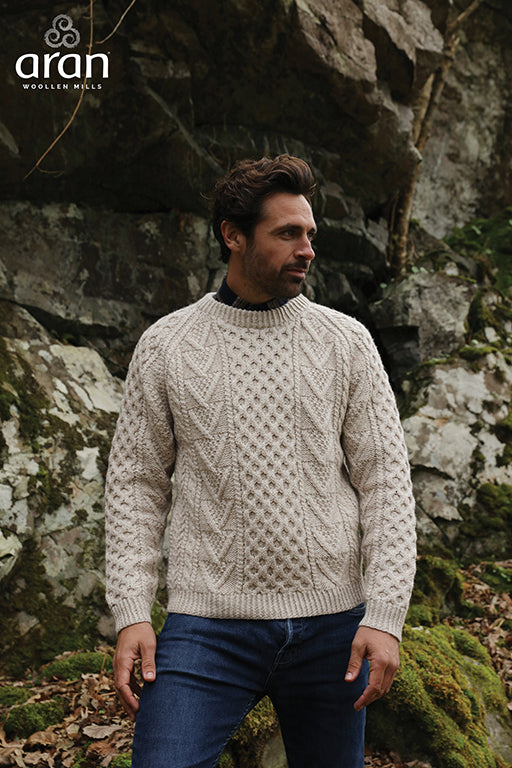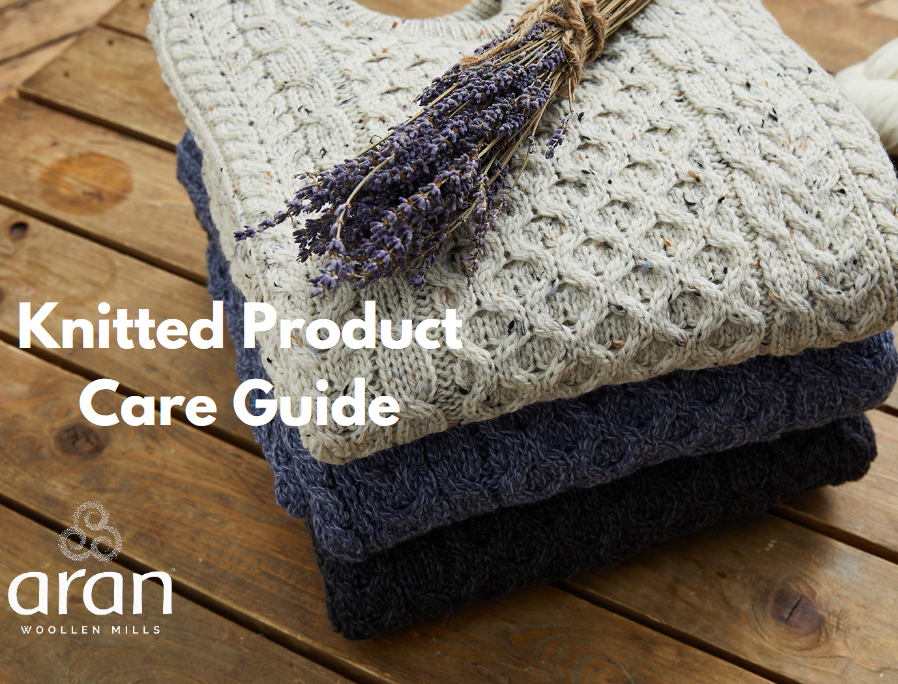You may have noticed, we boast majority of our products are made with 100% pure merino wool. We choose to work with Merino wool due to it’s high quality outcome for knitwear, but we appreciate not everyone will understand the extent of the fabric’s benefits. Today, we will cover what Merino wool is, what makes it such a valuable fabric and how it is processed.
Why do we work with Merino Wool?
Merino wool is the perfect fabric for Aran knitwear, due to the fibre’s ability to naturally regulate body temperature and deter water soakage. Aran jumpers were traditionally made for Irish fishermen, who would work hard in extreme conditions out at sea.
This caused for Aran jumpers to be made thick, insulating and resistant to the elements, which has carried on in their design today and has made them so popular worldwide. Merino wool allows Aran knitwear to retain these qualities to the highest standard.
What is Merino Wool Made Of?
Merino wool is made of proteins composed of amino acids and natural compounds. The wool is grown by sheep that have evolved to grow the wool to remain warm in colder seasons, and is shed by farmers in the warmer months. These sheep tend to grow 4-5 pounds of wool per year, making it a renewable and sustainable fibre. Because of sheep’s evolution to regulate body temperature, merino wool actually has some pretty amazing science to back up its ability to keep you warm. When met with cold conditions, the fibres offer natural patterns that crease together to insulate you, and when you produce sweat it quickly vaporises it, keeping you cool.
How is Merino Wool Processed?
The process of making the Merino wool into knitwear starts with of course, the sheep. The sheep is sheered in the appropriate areas of the body to ensure the softest wool is taken.
The wool is cleaned thoroughly to remove dirt and grease from the sheep, ensuring that the softness of the wool is kept. A process called “Carding”, where the wool is passed through metal bars making them into long threads, then detangles fibres. They are then spun by hand, creating the yarn material and is either weaved or knitted. The wool is also dyed and is given finishing touches to ensure the wool keeps its shape.

What are the Benefits of Wearing Merino Wool?
Wearing Merino wool has plenty benefits in itself. Firstly, it requires less washing than normal knitwear. Because of the wool’s ability to regulate your body temperature, you sweat less and absorb less water. This means it stays fresh for longer, meaning less washing! Many review Merino wool as being odour resistant, meaning you won’t need to worry about sweat.
Merino wool is also surprisingly quick to dry. It’s actually a fine fabric, meaning it dries itself of water after washing very quickly, and rarely requires dry cleaning.
Merino also rarely requires ironing, as it known to be wrinkle resistant. The elastic properties of the merino wool mean it bounces back to shape very easily, meaning less hassle for you after washing. Simply hang the knitwear up after storage and it will be the perfect shape.
One of the biggest benefits of merino wool is its soft touch. Where a lot of knitwear and Irish jumpers report being scratchy and uncomfortable, Merino is one of the softest fibres available. It doesn’t itch, provides flexible wear and is a strong material. It is actually 6 times stronger than cotton despite it’s soft and luxurious feel.
Final Thoughts
Merino wool is an ethical, sustainable, flexible and luxurious choice for knitwear. The fabric is designed to regulate your body temperature, meaning it’s great for warming and cooling no matter what element you’re in. With a thorough weaving process and huge benefits to the customer, we’re proud to supply Merino wool at Aran Store.


